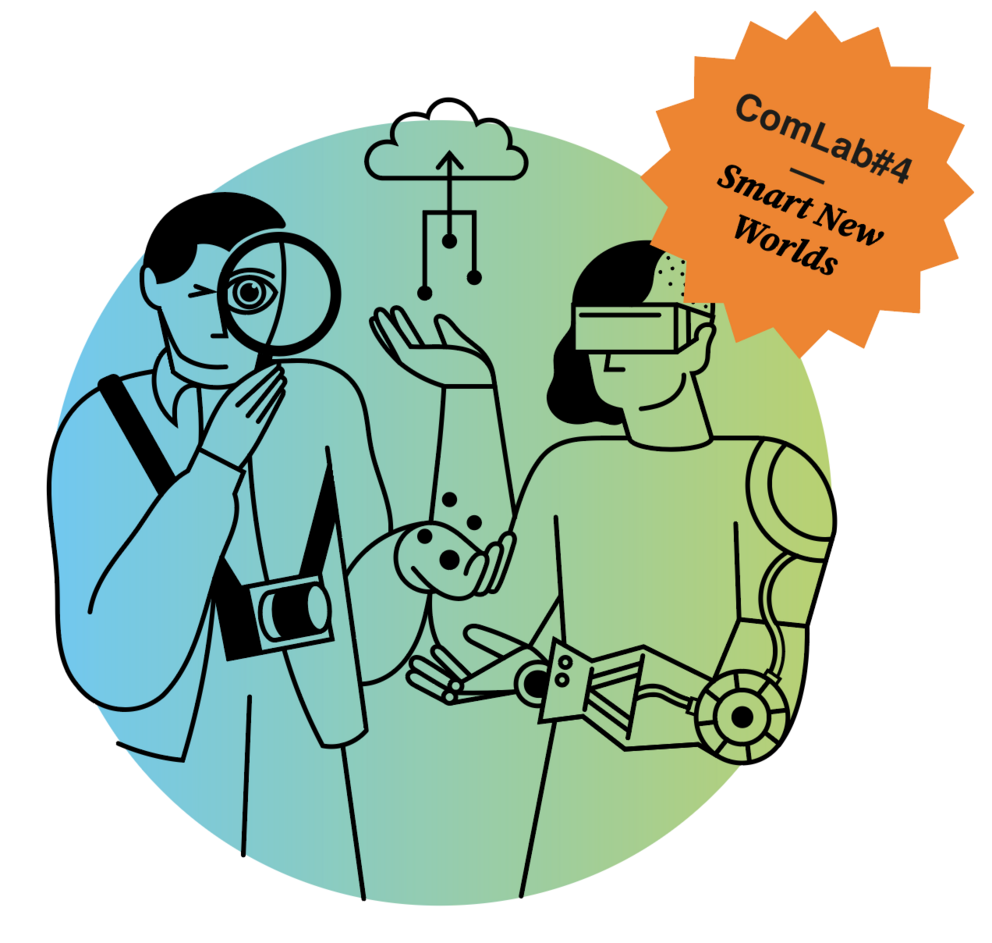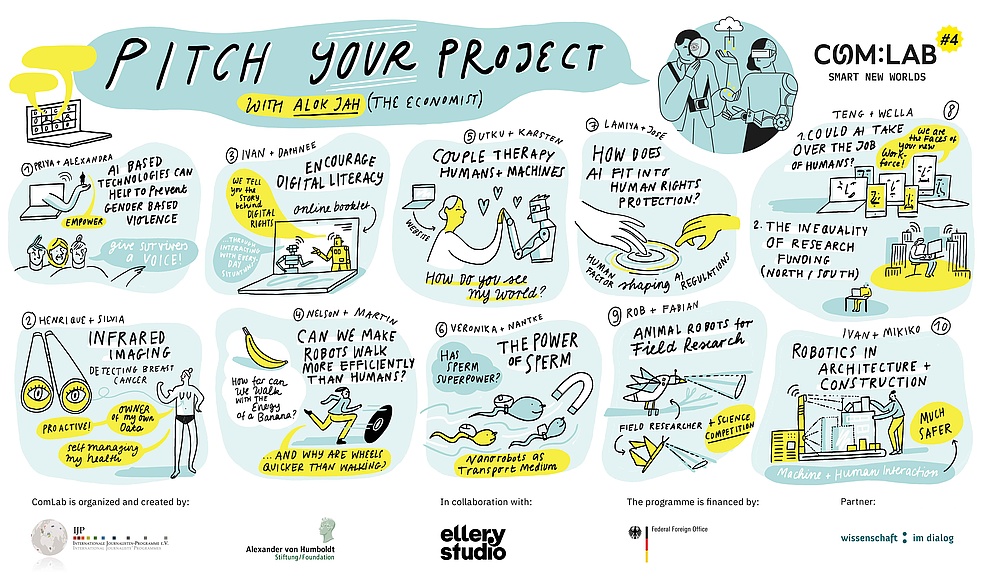

Contact
Press, Communications and Marketing
Tel.: +49 228 833-144
Fax: +49 228 833-441
presse[at]avh.de
In his laudation, Deputy Secretary General of the Humboldt Foundation Dr Thomas Hesse noted how impressed he was by the relevance of the projects presented at the ceremony and the collaborative work of journalists and researchers from around the world. Particularly in times when global peace and shared human values are at stake, we have to rely on intercultural and interdisciplinary cooperation, Hesse declared. He stressed that “it is important to remind ourselves of the strong ties between countries and people around the world. We need to maintain global cooperation The Communication Lab is a great example of this aim.” Thomas Hesse thanked the participants for their creative partnerships and dedicated work.

The external jury – consisting of Ulrike Winkelmann (editor-in-chief of taz newspaper), Alok Jha (scientist correspondent for The Economist), Jens Radü (managing editor for multimedia at the news magazine DER SPIEGEL) and Georg Scholl, head of the Press, Communications and Marketing division at the Humboldt Foundation – found it hard to reach a decision. The diversity of the topics tackled during the Communication Lab – which extended from the employment of micro robots in reproductive medicine to the uses of AI in architecture all the way to the subject of data expertise – is testimony to the wide range of new technologies and their potential uses.
The four selected projects convinced the jury through the originality of the respective topic and the chosen media, their appealing combination of scientific facts and storytelling, and the coherent way they addressed their target group. The cash prizes for the four best submissions went to:
- The journalist Silvia Plahl and the computer scientist Dr Henrique Fernandes (Federal University of Uberlandia) for their podcast and accompanying Instagram story “Breast Thermography – Can AI Help to Detect Cancer?” and the panel discussion “Cafe com Bit” about the potential of AI-based methods to detect breast cancer.
- The journalist Wella Andany and the organisational and technology researcher Teng Teng (Technical University of Munich, TUM) for their multimedia report „Competing Against Smart Machines“ about the situation of Indonesian workers in an increasingly automated world.
- The journalist Alexandra Eul and the app developer Priya Goswami for their three-part article series “Technology Will (Not) Fix This” about female entrepreneurs and researchers who use new technologies like AI to combat gender-based violence.
The Special Award went to the journalist Fabian Franke and the robotics engineer Dr Robert Siddall (University of Surrey) for the journalistic feature “Build Nature from Scratch” and the robot competition “The Natural Robotics Contest” – a project that explains how robotics can be applied to study ecosystems while using interactive elements to encourage others to join in.
The entries were produced during the fourth Communication Lab (5-6 November and 12-13 November 2021). The projects can be found here as soon as they will be published.


The Humboldt Foundation regularly offers ten of its sponsorship recipients the opportunity to work with journalists from the International Journalists’ Programmes to conduct projects on a topical, socially relevant issue. The Communication Lab series aims at increasing journalists’ and researchers’ awareness of what they expect from one another, how close cooperation works, and what constitutes good research communication
The next virtual Communication Lab will take place on 13-14 May and 20-21 May 2022. We want to tackle the following question: How will we organize the global exchange of goods, ideas and values in the future? Pandemics, political upheavals and resource dependency pose risks to the concept of a collaborative international community. In light of these developments, how can science and media contribute to constructive narratives? More on The New Global – Cooperation for the Future here.
